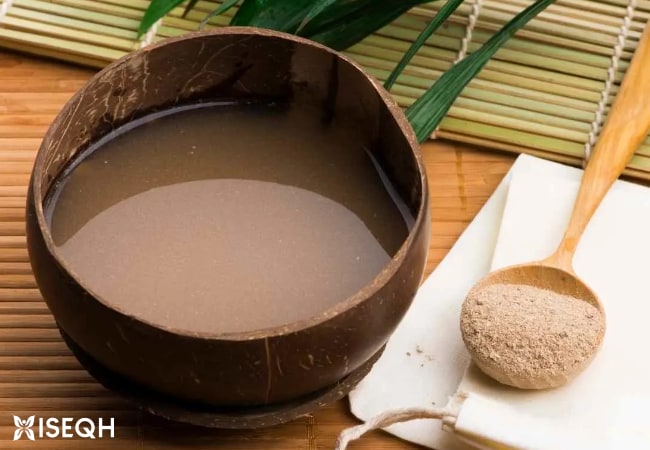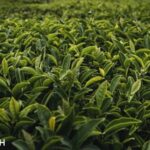
Table of Contents
Introduction
Kava is a traditional drink that is popular in many Pacific Island cultures. The drink is made from the roots of the kava plant. It has been used for centuries as a ceremonial drink and for medicinal purposes. In recent years, kava has become more popular in Western cultures as a natural alternative to prescription anxiety and stress medication.
This article will explore everything you need to know about kava, including its history, how it’s made, its benefits, and potential risks.
What is Kava?
Kava, also called ‘awa, is a quintessential traditional drink derived from the roots of the kava plant, renowned for its calming properties and stress-relieving effects. This beverage is a staple at social events, religious ceremonies, and medicinal practices across the Pacific islands, where it is believed to have originated.
Kava is prepared by grinding the kava root into a powder and mixing it with water to form a potent drink with a distinctive earthy flavor. The active ingredients in kava, kavalactones, interact with the brain’s receptors, inducing a relaxing effect, reducing anxiety, and promoting better sleep quality.
History of Kava
The origins of kava can be traced back to the Pacific Islands, where it has been used for centuries. The first written record of kava dates back to the 18th century when Captain Cook observed the native people of the Pacific Islands drinking the brew. Kava quickly became a staple of Pacific Island culture, used in religious ceremonies and social gatherings.
How is Kava Made?
Kava, a traditional beverage derived from the kava plant’s roots, undergoes a complex process to prepare. First, the roots are ground into a fine powder, then mixed with water to create a thick, murky mixture. The liquid is then strained through a cloth or other filter to remove any coarse particles and obtain a smooth, homogenous beverage.
The resulting kava drink has a distinctive earthy taste, often described as slightly bitter, with a numbing effect on the tongue and mouth. This sensation is due to the presence of kavalactones, the active compounds in kava responsible for its psychoactive effects. The intensity of the flavor and numbing sensation can vary depending on the kava strain, preparation method, and quality.
Kava Strains and Varieties
There are many different strains and varieties of kava, each with its own unique properties. Some popular kava strains include Vanuatu, Fiji, and Tongan kava. The potency of kava can vary depending on the strain and the preparation method.
Kava Benefits
Kava is known for its calming and soothing properties. It has been used for centuries as a natural remedy for anxiety, stress, and insomnia. Kava is also believed to have muscle-relaxing properties, which can be helpful for people with conditions like restless leg syndrome and chronic pain.
Potential Risks and Side Effects
While kava is generally considered safe when consumed in moderation, some potential risks and side effects exist. Heavy and prolonged use of kava can lead to liver damage and other health issues. Kava can also interact with certain medications, including antidepressants and anti-anxiety medications.
Kava vs. Alcohol
Kava is often compared to alcohol, as both substances have soothing properties. However, kava does not cause the same negative effects on the liver as alcohol. Kava is also not addictive like alcohol, making it a safer and healthier alternative.
Kava in Western Culture
In recent years, kava has become more popular in Western culture as a natural alternative to prescription anxiety and stress medication. Kava bars have popped up in many cities, offering kava drinks as a social alternative to alcohol. Kava has also gained popularity as a dietary supplement, with many people taking kava supplements to help with anxiety and stress.
Where to Buy Kava
Kava can be purchased online, in health food stores, and at kava bars. When purchasing kava, buying from a reputable source is important to ensure you’re getting a high-quality product.
How to Prepare Kava
To prepare kava, you’ll need to mix the kava powder with water and strain it through a cloth to remove the solids. The resulting liquid can be consumed cold or warm. Traditionally, kava is consumed from a communal bowl, with each person taking turns drinking from the same bowl.
Kava Dosage
The dosage of kava can vary depending on the potency of the strain and the desired effects. Therefore, it’s important to follow the instructions on the product label and not exceed the recommended dosage.
Conclusion
Kava is a traditional drink with a long history of use in Pacific Island cultures. In addition, it has gained popularity in Western cultures as a natural alternative to prescription medications for anxiety and stress. While kava is generally considered safe when consumed in moderation, it’s important to know the potential risks and side effects. As with any dietary supplement, it’s always best to talk to your doctor before using kava.
FAQs
Is kava legal?
Kava is legal in most countries, but there are some countries where it is banned or heavily regulated. Therefore, it’s important to check the laws in your country before purchasing or consuming kava.
Can kava be addictive?
Kava is not addictive like alcohol or other drugs. However, prolonged and heavy use of kava can lead to health problems.
Can kava help with anxiety?
Kava is known for its calming and sedative properties, and many people take it to help with anxiety and stress. However, talking to your doctor before using kava as a treatment for anxiety is important.
Is kava safe to consume?
Kava is generally considered safe when consumed in moderation. However, heavy and prolonged use of kava can lead to health problems.
What does kava taste like?
Kava has a bitter and earthy taste with a numbing effect on the tongue and mouth.








